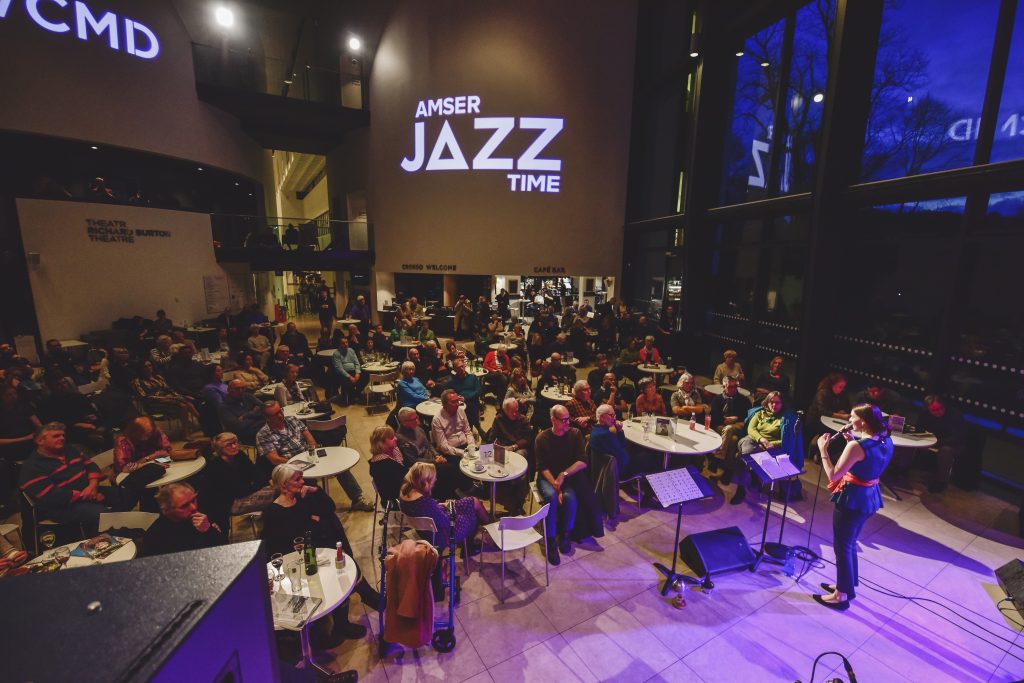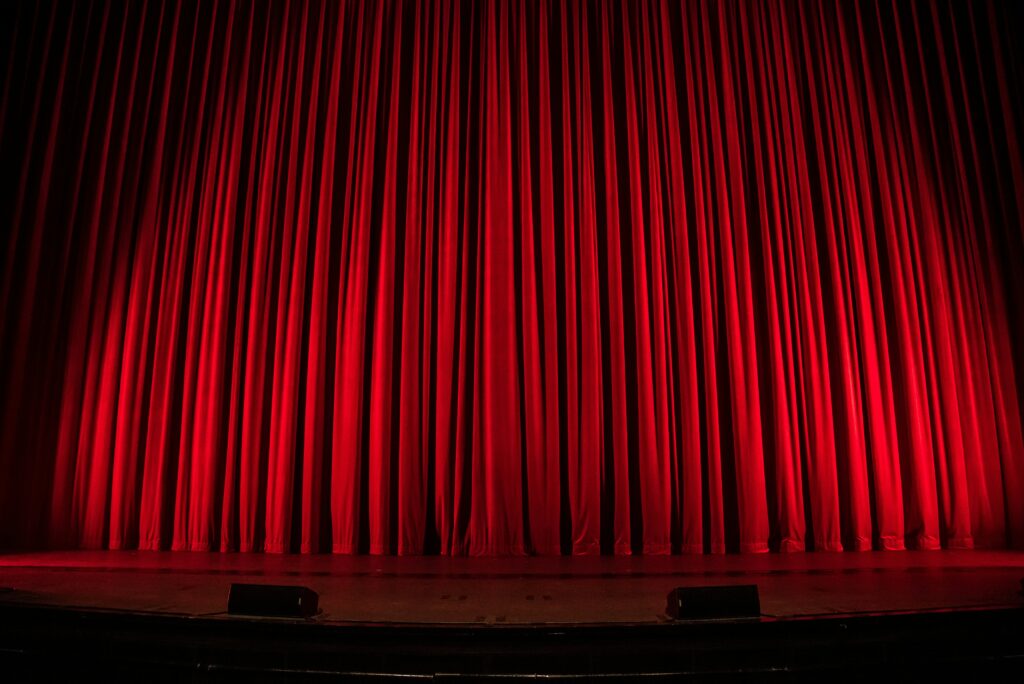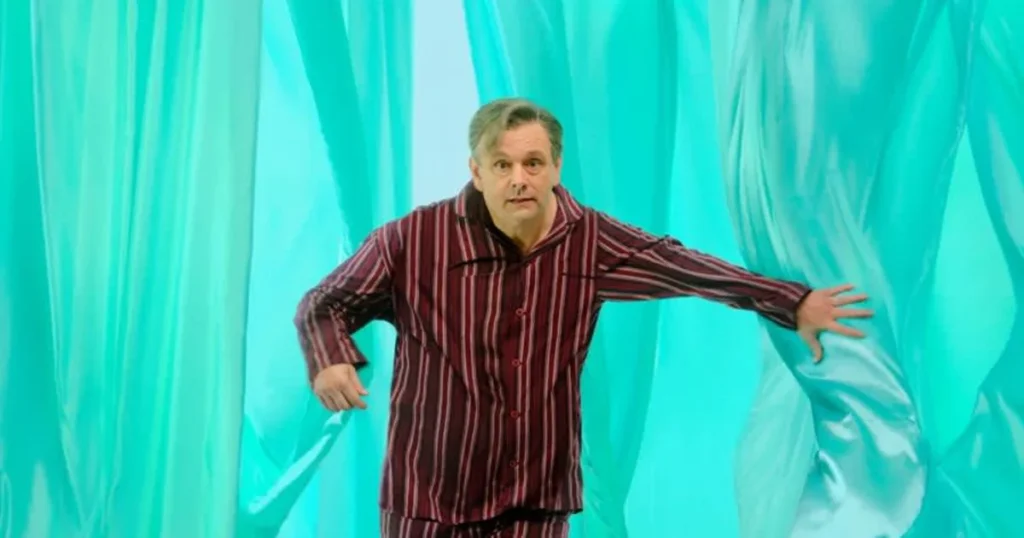Professor Helena Gaunt, Principal of Royal Welsh College of Music & Drama, argues musicians must be trained to be ‘makers in society’.
2021 has been extraordinary. Any number of unpredictable events (both wonderful and devastating) is a lot to take in at an already eventful time in our lives – but one stands out for me as a ray of hope.
Over the summer, a herd of a hundred elephants made their way into central London from the Nilgiri Hills of Tamil Nadu – beautifully sculpted life-size creatures, each crafted from close observation of a live animal and ingeniously made from an invasive weed, lantana. The Co-Existence project was masterminded by RWCMD graduate Shubhra Nayar and Ruth Ganesh. The elephants are travelling around the world, inviting people to meet them, walk amongst them, feel close to a herd in nature and understand what it is to make space for us all to co-exist on this planet. Cleverly, the elephant sculptures are also paying their way, raising over £3m through the London project, with profits being reinvested into the communities of local craftspeople who created them and into human-wildlife co-existence projects.
It’s an inspiring sight, exquisite artistically, and with a clear social imperative. The work, majestically positioned outside Buckingham Palace and across some of London’s major parks, was impossible to ignore. At a time when arts and culture across the globe is under immense pressure to define its value, it was also a brilliant reminder of both the sheer delight that art can bring, and how powerful it is when truly connected to people, values and purpose.
The principle of music being about ‘making’, bringing together artistic and social dimensions, can help take Wales forward in new and innovative ways.
In the year that would have been his 100th birthday, Raymond Williams’ words continue to ring as true today as they ever were: Culture is Ordinary. Culture is made by and for everyone. Old divides of high and popular cultures, ‘high’ and ‘low’ art, are desperately tired.
In a Welsh context, we have a ‘once in a lifetime’ opportunity to reimagine the place and purpose of the arts and culture in our societies from their foundation with the introduction of a new school curriculum in which Expressive Arts are weaved throughout as an area of learning and experience. Coupled with a new National Music Service within the Programme for Government now well underway, there’s everything to play for.
As Wales’ national conservatoire, we’ve been putting real thought into how we can best train our musicians for the future, asking how they can shape the industry of the future, enrich the diversity and complexity of contemporary societies, work from the core of their craft and artistry as performers and composers to make a difference.
Robust debate and agenda-setting research.
Support Wales’ leading independent think tank.
Director of Music Tim Rhys-Evans and his team have come up with an innovative way forward, shaking up any notion of rarefied exclusivity and focusing on developing musicians as ‘makers’ in society. This means being immersed in communities, creative collaboration, entrepreneurship as integral parts of their artistic development, and with an emphasis on audience diversity among other things. This is core to our new BMus offer.
The principle of embracing a world beyond an individual’s deep craft skill – but all the while honing it – is applicable to all kinds of music teaching and learning. The principle of music being about ‘making’, bringing together artistic and social dimensions, can help take Wales forward in new and innovative ways. Entirely in line with the spirit of the new national curriculum, and with the deep roots of Wales’ cultural traditions, we can show beyond doubt that Wales is bold and unapologetic, a leader in arts and culture – unafraid to be different.
Raymond Williams wrote Culture is Ordinary in 1958, so why has so little changed in reality?
As a world-class college, we focus on the often-assumed conflictual, but – in fact – natural relationship between being an expert and being inclusive. These two states belong together and they need to work together more and more if the arts are truly to be for and of everyone, not just the fortunate few. Bringing the expressive arts into the national curriculum for every young person rests on the same principle – expertise and inclusivity working together to deliver a difference, creatively and socially – a deep commitment to the arts alongside culture as ‘ordinary’.
It means connecting values and priorities which have previously all too often been perceived to compete and conflict. These are priorities such as: artistic autonomy and craft expertise on the one hand, and on the other hand social and societal aspects of music-making, whether this concerns connecting with a range of different audiences or going further, in proactive ways, to address inequalities, loneliness and isolation, or to explore major societal challenges such as migration, climate change, conflict and violence.
Raymond Williams wrote Culture is Ordinary in 1958, so why has so little changed in reality? Perhaps, in part, due to a reluctance or inability in too many quarters to connect these values and priorities fully. But right now, there is an imperative as never before, and the conditions in Wales are promising. We need to make the very best of that chance.
From our North Road campus and arts centre at RWCMD, we are privileged to work with a shining example of this kind of paradigm shift in action. Manchester Collective is an award-winning flexible ensemble of brilliant musicians with diverse backgrounds and influences, committed to immersion within communities. Rather than pursuing their music and then working out who the audience is, they flip it to ask first where they can make a difference and then get to work artistically from their core values, repertoires and skills. Cleverly combining social and artistic purpose, they have developed numerous innovative projects through lockdown that have captured hearts and minds. And they are now also contributing to transformational change for our new BMus.
To return to the elephants, the core message of what can be seen as an environmental art campaign is that there is room for both humankind and nature on this planet. This is just one form of an artistic making process immersed in society. There’s room for so many more and innovative forms that have yet to be imagined, ways for artists to be immersed in their communities locally and globally. Looking to 2022, we at RWCMD are looking forward to unlocking all kinds of possibilities when we reimagine Cardiff’s Old Library. It will be a catalyst to go much further in turning this thought into action and to imagine the unimaginable. In the summer, we’ll be sharing more of our vision and inviting others to engage with us to develop it and move forward to make it happen.
Raymond Williams wrote, “To be truly radical is to make hope possible rather than despair convincing”. This is a moment to be radical in exactly that way.
As we journey onwards through the global pandemic, it is our commitment at RWCMD. We will do everything we can to play our part.
Professor Helena Gaunt is keynote speaker at Strengthening Music in Society: The way forward for UK Conservatoires on 16 December – a conference to bring together key voices and perspectives from across the classical music sector to address the challenges and opportunities currently facing UK conservatoires and the classical music system. Her co-authored paper Musicians as ‘Makers In Society’ highlights the main themes that have emerged from an international four-year AEC project.
All articles published on the welsh agenda are subject to IWA’s disclaimer.





